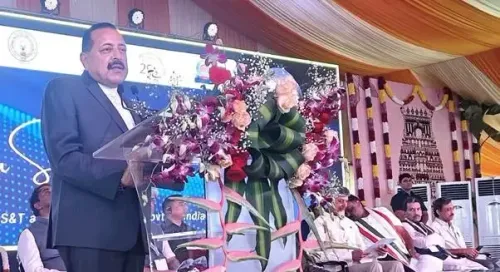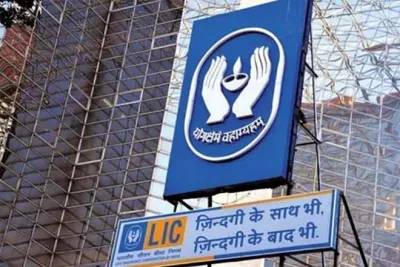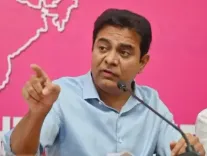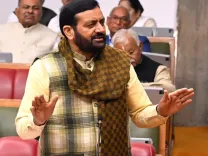How is the Centre Tightening RFP Norms to Improve National Highway Projects?

Synopsis
Key Takeaways
- Stricter RFP norms for national highway projects.
- Enhanced contractor qualification standards.
- Increased transparency in financial disclosures.
- Improved project execution quality and reduced delays.
- Prohibition of unauthorized subcontracting practices.
- Third-party sourced securities are no longer accepted.
New Delhi, Sep 17 (NationPress) To enhance the execution of national highway projects, the government on Wednesday implemented stricter Request for Proposal (RFP) norms aimed at fortifying contractor qualification standards, ensuring compliance during project execution, and increasing transparency in financial disclosures.
To elevate the quality of project execution, minimize delays, and lower the overall lifecycle cost of National Highway projects, NHAI has issued clarifications regarding RFP provisions that focus on enhancing contractor qualification standards, ensuring adherence to project execution protocols, and boosting transparency in financial submissions.
“The rigorous conditions stipulated in various clauses within the RFP will guarantee that only technically proficient and seasoned contractors qualify for the execution of National Highway projects,” stated the Ministry of Road Transport and Highways.
A significant aspect of this provision is the clarification of the 'Similar Work' criteria in bid qualifications, often misrepresented by contractors to qualify for large-scale highway projects despite only having experience in minor or peripheral tasks that do not reflect the complexity and scale of comprehensive highway development.
NHAI has clarified that 'Similar Work' now exclusively refers to completed highway projects, incorporating all major components analogous to those required for the current bid.
“In addition to refining the qualification criteria, the clarifications to the RFP also aim to combat the unauthorized engagement of EPC contractors in HAM and BOT (Toll) projects, as well as subcontractors in EPC projects. There have been instances where concessionaires or chosen bidders engaged contractors without the necessary prior approval from the Authority or exceeded the allowable subcontracting limits,” the ministry reported.
Such practices not only breach contractual norms but also jeopardize quality assurance, project timelines, and regulatory oversight. Any unauthorized subcontracting and subcontracting beyond the permissible limits will be classified as 'Undesirable Practices,' attracting penalties comparable to those for fraudulent activities.
This initiative is expected to reinforce discipline in contract execution and protect the integrity of the implementation process.
Another key component of the reform prohibits the submission of 'Bid and Performance Securities' sourced from third parties. Reports indicate that some selected bidders have provided financial securities issued by third parties, which undermines accountability and raises concerns regarding enforceability and bidder liability.
The ministry clarified that third-party sourced instruments are now disallowed, ensuring that only securities backed by the bidder or its approved entities will be accepted.
This step is anticipated to enhance financial transparency and improve the enforceability of contractual obligations.










